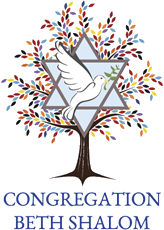Dear friends, Shalom, chaverim
A bumper sticker caught my attention when I was living in Israel. It read, simply, “ain od milvado” The first two words were familiar to me from the Aleinu: Ki hashem hu ha-elohim ba-shamayim mi-ma’al ’v’al ha-aretz mitachat ain od.” “For the LORD is our God from the heavens above to the earth below, there is no other.” But milvado?
Eventually I figured out that the third word came from lavad, “alone.” I discovered the phrase was a quotation from the Torah, Deuteronomy 4:35: “It has been clearly demonstrated to you that the Eternal alone is God, there is none else.” In fact, that all-inclusive description of God in the Aleinu comes from the same passage, Deuteronomy 4:39. It was satisfying to figure out the puzzle (and to identify the kind of Jerusalemite who would slap such a declaration on their car).
Lately I’ve been thinking about that bumper sticker again. In February, we began to learn new vocabulary: ‘novel coronavirus,’ ‘COVID-19,’ and ‘then social distancing.’ As people began to sicken and die from China to Italy, to Washington, our anxiety began to build. Last week, it dawned on me that the whole world had shifted as social distancing became the norm. Everyone began contemplating unheard-of challenges involved in ‘flattening the curve’ of critical cases of COVID-19 to prevent the disease from overwhelming the nations already stressed public health and hospital systems.
Perhaps it isn’t just God anymore. Now maybe we are all Ain od milvado. No one else but us — teaching children and working online, avoiding public gatherings of any size, declining hugs, even handshakes, mourning the loss of travel, celebrations, activities, sports, and concerts, striving to protect the susceptible. This is a mass outbreak of loneliness every bit as much as of the novel coronavirus.
It has been said that this disease strikes at the heart of Jewish community, that our insistence on gathering in at least a minyan is at the root of who we are as a people. It troubles me, too: How can we be a congregation if we can’t congregate?
And yet. “Kadoshim tihiyu — You shall be holy, for I, the Lord your God, am Holy.” (Leviticus 19:1) Holy, Kadosh, means “separate, set apart, distinct.” Balaam the seer, no friend of Israel, blesses us by saying, “…there is a people that dwells apart/Not reckoned among the nations,/Who can count the dust of Jacob,/Number the dust-cloud of Israel? May I die the death of the righteous/May my fate be like theirs!” As a Jewish community, we also know something about solitude and isolation for a greater purpose than ourselves. I pray that we will draw on this strength in our collective memory, and share it with all the peoples of the earth — for so many others must now also be ‘a people that dwells apart’ – Ain od milvado – for the first time.
L’hitraot,
Rabbi Justin
